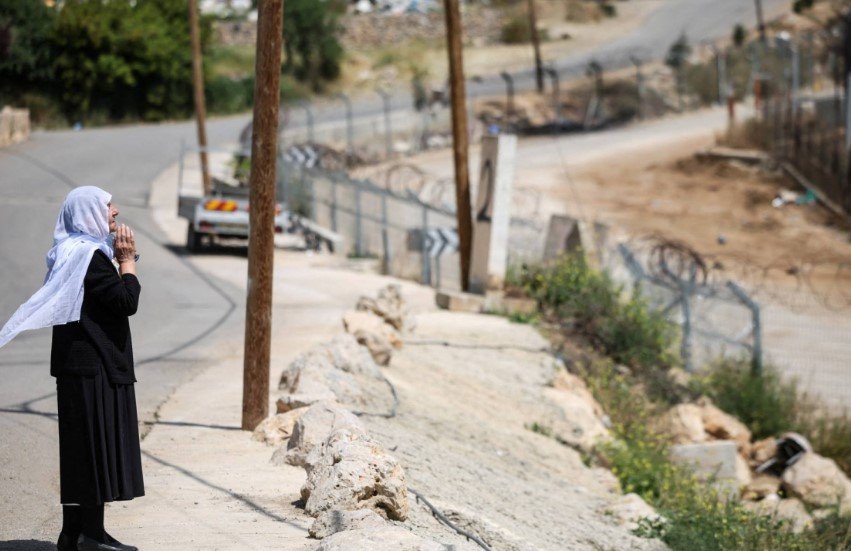Interim president pledges justice for southern Syria’s Druze, defies Israel’s military strikes with televised vow
Syria’s interim President Ahmed al-Sharaa addressed the nation Thursday night with steely defiance and a blunt promise: the Druze community will be protected, even as Israeli airstrikes continue hammering the outskirts of Damascus.
It was his first appearance since Israeli jets launched a new wave of attacks across Syrian military installations. And his message was loud and clear — “We’re not afraid. We’ve been through worse.”
The Man, the Moment, the Message
Wearing a plain suit and speaking from an undisclosed location in Damascus, al-Sharaa didn’t hold back. His voice, calm but firm, struck a nerve with many in Syria’s fractured communities.
“We are not among those who fear war,” he said in Arabic, in a statement broadcast live on Syrian state TV and later subtitled in English. “We have spent our lives facing challenges and defending our people. But we have always placed Syria’s future above chaos.”
One line stood out more than the rest.
“We reject any attempt to drag the Druze into the hands of an external party,” he said.
The speech came barely 24 hours after Israeli fighter jets struck at least three suspected weapons depots in Damascus’ suburbs. The attacks were reportedly aimed at Syrian Army positions accused of shelling Druze-populated towns in southern Syria near the Golan Heights.
That makes this more than just another regional flashpoint. It’s personal.

A Community on Edge — and a President on Notice
The Druze, a small but influential ethno-religious group, have long tried to stay neutral in Syria’s grinding civil war. But in recent weeks, that fence-sitting has gotten harder.
Shelling in Sweida and nearby villages has killed at least 18 Druze civilians since July 5, according to the Syrian Observatory for Human Rights. Locals blame pro-government militias. Israel, in turn, says it will continue “precision strikes” against units that target Druze areas — regardless of their affiliation.
So what happens when both Damascus and Jerusalem say they’re defending the same people?
Here’s the tightrope al-Sharaa is walking:
-
He needs to maintain legitimacy by standing up to Israel.
-
He can’t alienate the Druze, who are increasingly disillusioned.
-
He must show some control over rogue army units — if that’s even possible.
That’s a political firestorm no one would envy.
Israel Signals Escalation, Syria Tries to Reclaim the Narrative
While al-Sharaa was making his speech, Israeli jets were reportedly flying over the Qalamoun Mountains near the Lebanese border. The Israeli Defense Forces (IDF) confirmed that they had struck “Syrian government-linked sites” accused of backing assaults in the Sweida region.
Israeli Defense Minister Benny Gantz didn’t mince words either. “We will not tolerate attacks on innocent Druze. Our response will be direct and unrelenting,” he told KAN radio Thursday morning.
Syria fired back with diplomatic heat and ground-based air defense, although no Israeli jets were reportedly hit. A few missiles were intercepted, but video footage from activists showed large plumes of smoke in multiple districts of Damascus by sunrise.
And yet, al-Sharaa’s speech barely mentioned Israel by name. Analysts say that was strategic — he wanted to look strong, not cornered.
One security analyst in Beirut called it “classic Syrian political theater with real blood on the stage.”
The Golan Factor: A Geopolitical Fuse
The situation is complicated further by the Golan Heights — a flashpoint that has simmered for decades.
The Druze population on both sides of the Golan line — some with Syrian ties, others now Israeli citizens — are caught in a strange geopolitical crossfire. On Wednesday, dozens gathered at the open border crossing near Majdal Shams, calling for peace and accountability.
A tearful reunion between two elderly Druze sisters — one from Syria, one from Israel — briefly went viral. But the emotion behind that moment speaks volumes.
One woman, who only gave her name as Fatmeh, said, “We just want to live. Not as Syrians or Israelis. Just as Druze. That’s it.”
What Comes Next? It Depends on Who You Ask
The Syrian government claims it’s investigating the recent shelling of Druze areas, but few are holding their breath.
Meanwhile, human rights monitors warn the situation is becoming dire in rural Sweida and Quneitra, where internet access is limited and humanitarian aid often gets blocked.
And yet, al-Sharaa’s public pledge — while vague on specifics — has stirred some hope in the Druze heartland.
For now, people are waiting to see if words will be followed by action.
Syria’s Strategic Calculus — Between Resistance and Restraint
The bigger picture? Syria doesn’t want a direct war with Israel right now. It simply can’t afford one.
Still recovering from over a decade of civil war, facing an economy in freefall, and navigating tense regional ties, Damascus is in no position to escalate militarily. That’s why al-Sharaa’s speech, though defiant, was carefully worded.
Table: Key Actors and Statements (July 16–17, 2025)
| Actor | Statement/Action | Implication |
|---|---|---|
| Ahmed al-Sharaa | “We’re not afraid… Syria first, not chaos.” | Trying to rally unity, contain unrest |
| Israeli Defense Forces | Struck Syrian military sites near Damascus | Warned of further retaliation |
| Druze community leaders | Called for justice and protection | Increasing pressure on both sides |
| Syrian Observatory | 18 Druze civilians killed since July 5 | Rising toll, worsening tensions |
There’s a quiet fear that if either side miscalculates — or overreacts — this could spiral into something far worse than just airstrikes and speeches.
One mistake, one botched missile, and this fragile thread could snap.
